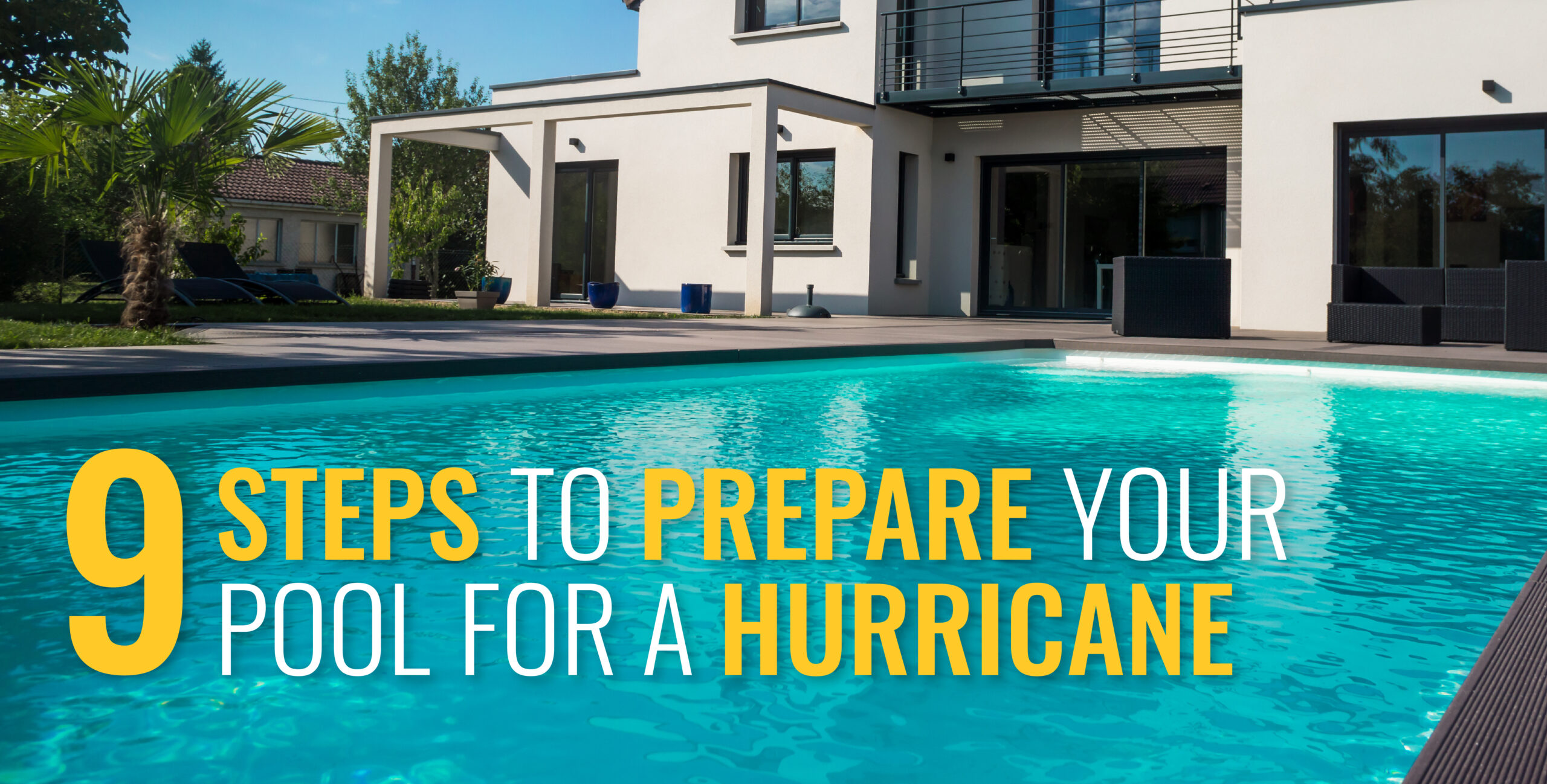As hurricane season approaches, it's crucial to ensure the safety of your property, including your…

Top 4 Benefits of Using an Electric Pool Heater
An electric pool heater is one of the most popular devices for keeping pool water warm during the winter. Also known as a heat pump, an electric pool heater warms up your pool by sucking some water into a heating tank and then pumping the warm water back into your pool. The constant exchange of warm and cold water keeps your pool fit for swimming even during the winter.
When researching a method of heating the water in your swimming pool you will find different systems, all have their advantages and disadvantages, in this article we will discuss water-source heat pumps and air source heat pumps. We hope this helps you make an educated decision.

Water-source heat pumps operate independently of air temperature
A water-source (geothermal) heater transfers heat from a body of water to your pool (learn more about water-source heaters here). Because a water-source heater relies solely on heat from a water source, it operates independently of air temperature.
Water-source heaters greatly benefit pool owners who live in colder climates because they can provide for comfortable swimming even during fall and winter months.

Heat and cool your pool, Air-source heat pumps can do both!
Some air-source heaters can be used to both heat and cool your swimming pool. These heaters are referred to as reverse-cycle heat pumps, or chillers. As its name suggests, a reverse-cycle heat pump cools your swimming pool by reversing its refrigeration cycle. By heating your swimming pool during winter months and cooling your pool during summer months, a reverse-cycle heat pump ensures that your swimming pool maintains comfortable swimming temperatures year round.


Heat pumps provide a reliable swimming pool heating option
When explaining the reliability of heat pumps to consumers, many heat pump experts here at AquaCal® use the same analogy: A heat pump is as reliable as your refrigerator or air conditioner!
If you properly install and maintain your heat pump, its lifespan can exceed ten years twice that of a gas heater! You should therefore have a qualified heat pump professional and a licensed electrician install your heater, as they will know all relevant placement, plumbing, and electrical requirements. You should also hire a qualified heat pump professional to perform annual maintenance on your unit. Most pool heaters are made of materials designed to last in the outdoor swimming pool environment, but malfunctions like improper water flow can severely damage internal components.
This type of pool heating system is more reliable and efficient compared to other types of pool heating systems. Although electric heaters are a bit more expensive than the traditional gas powered heaters, it consumes less energy than the gas powered type so you end up spending less money on your heating bills. In the long run, your electric pool heater will cost you a lot less than the traditional propane gas-powered heaters. Moreover, an electric heater does not emit carbon dioxide like the gas powered heater so you get to help reduce the amount of carbon in the air.

Pool Heaters cost less than $5 per day to operate
With their Coefficient of Performance measuring between 5 and 6, heat pumps offer very efficient heating (a Coefficient of Performance is an efficiency rating that measures the ratio of energy output to energy input). And due to this high Coefficient of Performance, heat pumps have very low operating costs. Specifically, heat pumps cost up to six times less than gas heaters and electric resistance heaters per month.

A pool heaters low operating costs make it a great long-term swimming pool heating investment. It has a much higher rate of return than a gas heater or an electric resistance heater. Also, when maintained properly, you can expect your pool heater to last for about 10 to 15 years without needing replacement. Propane gas-powered pool heaters on the other hand only last an average of 5 years.
Hopefully this article helps you in your search for a heating system. For a complete discussion on swimming pool heating methods, you can read The Definitive Guide to Heating Your Swimming Pool. As always, feel free to leave any thoughts or questions in the comments section below!






How can I register my new heat pump
Hi Suzanne,
Copy the link below to your browser. This will take you to our online registration form. If you have any questions, please call us at 727-823-5642.
https://www.aquacal.com/warranty-registration2/
Thanks,
AquaCal Tech Support
I love the hot 90 degree pool in the summer WHEN I swim. Any suggestions? We have propane now and I can use a full tank in two days, and the constant reordering is inconvenient. Any suggestions?
Hi Carol. Sounds like a heat pump is definitely the way to go for the majority of your pool heating. There’s no need to remove your gas heater, though. AquaCal heat pumps actually have hybrid functionality that can initiate a gas heater when an extra boost of heat is needed. The gas boost can be used to get the pool up to your desired temperature and then the heat pump can take over to maintain the heat. That can cut your gas cost, and reordering inconvenience, quite a bit! Click here to find an AquaCal dealer in your area.
Hi- we’re looking for a pool heater this winter for our backyard pool- can you provide some info?
Thanks,
Christine
Hi Christine,
AquaCal manufactures many different sizes of heat pumps. To determine which heat pump would be best for you, please call us at 727-823-5642.
Thanks,
Thank you very much Hayden-
We appreciate your comments, please feel free to check in weekly as we post new information every week!
What is the Installation like for this system.
Thanks good information.
Good Morning Mr. Maxwell,
Hope you are doing well. Installation of a heat pump is easy if you already have the correct electrical & plumbing run to the site. Also, please remember to check local codes to see if a pad is required in your area.
Please feel free to call tech support at 727-456-7411 with any questions.
Thanks
Robert
In today's world human being want to swim at every time of year. They don't want to be depend on seasons to take joy of swimming and surely heat pumps are the solution. As I used to read your blogs, your blog always contains informative information. Thank you for sharing this part of heat pumps. Good variety of content.